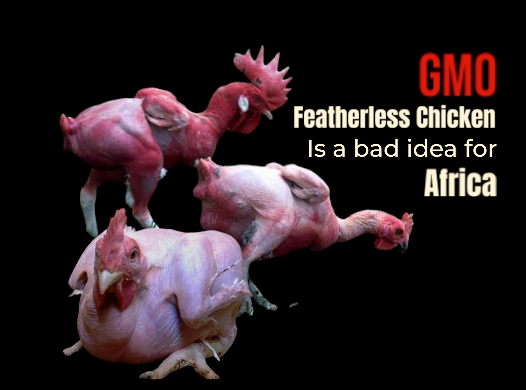Read Our Blogs

Guardians of the Sacred: Preserving Africa's Heritage in the Face of Modern Challenges
admin abcd 0 comments
In the heart of Africa, where the ancestors' wisdom hums through the ancient trees and the land pulses with sacred rhythms, we are called to reflect deeply on the choices that shape our future. Today, Africa faces a great challenge—one that comes disguised in the cloak of development, yet often erodes the very foundation of our identity and spirituality. The introduction of genetically modified organisms (GMOs)
like the featherless chickens being sent to African nations is not just a question of agriculture or food security, but of sovereignty, culture, and spiritual harmony.
In the Ashingne tradition, life is interconnected, a vast web where every being, from the smallest insect to the tallest tree, plays a role in the cosmic dance. The introduction of foreign elements, without thorough consultation or respect for local customs, disrupts this delicate balance. Just as the featherless chickens, developed for ease of production in hot climates, are sent to Africa but not sold in their place of origin,
we must ask ourselves—what is being hidden? Why are these products deemed unfit for those who created them, yet imposed on Africa? This speaks of a deeper problem, where the natural order is tampered with, and Africa is left to bear the consequences.
Our ancestors remind us, "When the roots of a tree begin to decay, it spreads death to the branches." By introducing GMOs like featherless chickens, we may unknowingly be inviting decay into our ecosystems, our traditions, and our spiritual practices. In many African communities, chickens are not just food—they hold symbolic power, used in rituals, sacrifices, and spiritual ceremonies. The alteration of these sacred
animals could disrupt practices that have sustained us for centuries.
This is not just about feathers or science; it is about who we are as a people. The Ashingne tradition teaches us to honor the source of life, the balance between nature, spirit, and humanity. As stewards of the earth, it is our duty to safeguard the integrity of our environment and our customs. In failing to do so, we risk losing the very essence of what makes us whole.

Africa's history has long been one of outside forces attempting to dictate our future. From colonization to modern development projects, time and time again, decisions are made without our full participation, often leaving us vulnerable to unintended—and sometimes devastating—consequences. Yet, the Ashingne tradition reminds us that we have the strength to reclaim our power: "The axe forgets, but the
tree remembers."
Now is the time to rise, to remember our roots, and to ask critical questions about what is being brought into our lands. The story of featherless chickens should be a wake-up call, not just about food security, but about cultural security. We must stand strong, ensuring that any development in Africa is rooted in our values, aligned with our spiritual traditions, and does not compromise the sacred relationships we
have with the land and its creatures.
As the world races forward with technological advancements, Africa must pause to reflect on the wisdom of our ancestors, who understood the importance of balance, connection, and harmony. "If you heal the land, you heal the people." Let this be our guide as we navigate the complexities of modernity, ensuring that in our quest for progress, we do not lose sight of who we are.
The introduction of GMOs, foreign ideas, and technologies must be met with vigilance, wisdom, and an unwavering commitment to the well-being of Africa’s people, animals, and spirit. As we move forward, let us ensure that every decision honors the legacy of those who came before us, protecting the intricate web of life that sustains us all. Our ancestors are watching, and it is our responsibility to make sure that
the Africa we leave behind is as rich in spirit and culture as the one they entrusted to us.










